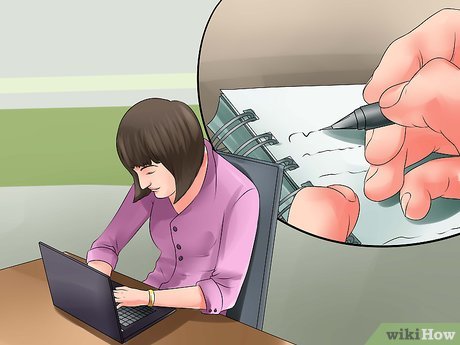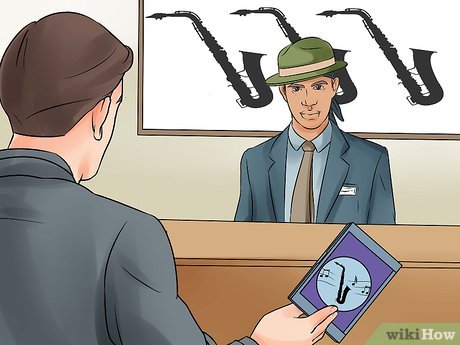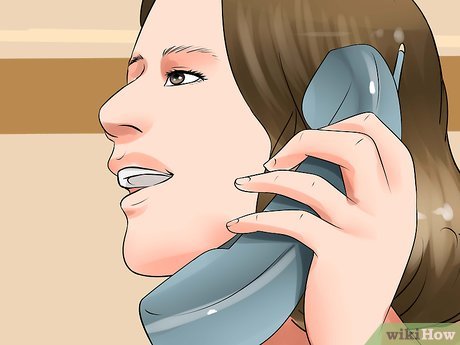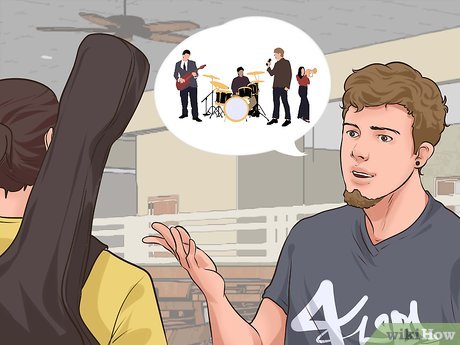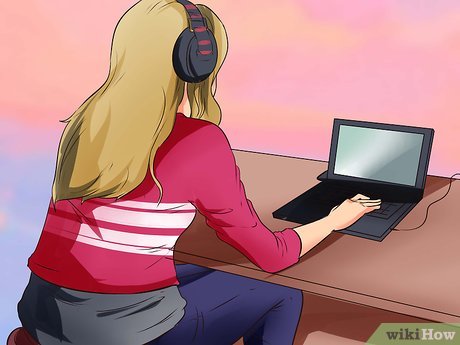How to Get Music Rights
Part 1 of 2:
Identifying Who to Ask For Permission
-
 Figure out what rights you need. There are two different licenses you need before you can use a piece of music: the synchronization license and the master use license.[1] Each license confers different rights to the holder, but both are necessary to use a piece of music, for example, in a film.
Figure out what rights you need. There are two different licenses you need before you can use a piece of music: the synchronization license and the master use license.[1] Each license confers different rights to the holder, but both are necessary to use a piece of music, for example, in a film.- The synchronization license grants the right to pair a piece of music with your visual image.
- The master use license grants the right to reproduce a specific recording of the piece in your work.[2]
-
 Determine whether the music is in the public domain. In the United States, any song or musical work published in or before 1922 is in the public domain. In most other countries, music enters the public domain 70 years after the author's death. If a piece of music is in the public domain, no one owns the composition, so you can freely perform or record it.[3]
Determine whether the music is in the public domain. In the United States, any song or musical work published in or before 1922 is in the public domain. In most other countries, music enters the public domain 70 years after the author's death. If a piece of music is in the public domain, no one owns the composition, so you can freely perform or record it.[3]- Remember, although a composition is may be in the public domain, no sound recordings are public domain in the United States.[4] Thus, although the nursery rhyme "Baa Baa Black Sheep" dates back to 1765[5], you will still need permission to use an artist's recording of the song.
- You can find a list of public domain music at http://www.pdinfo.com/public-domain-music-list.php.
-
 Identify whose permission you need. You need to get the synchronization license from the copyright owner. The copyright owner is typically the publisher. You must get the master use license from the person or entity that owns the specific recording you want to use. This is usually the record label.
Identify whose permission you need. You need to get the synchronization license from the copyright owner. The copyright owner is typically the publisher. You must get the master use license from the person or entity that owns the specific recording you want to use. This is usually the record label.- If you have a physical copy of the album, consult the liner notes to find the names of the publisher and the record label.[6] If the music is independently published, you may only need the artist's permission to use the song.
- There are three main performing rights organizations in the U.S. that represent publishers in the collection or royalties: ASCAP, BMI, and SESAC.[7] These organizations may be able to direct you to the publishers and labels from whom you will need to ask permission.[8]
Part 2 of 2:
Requesting Permission
-
 Contact the owners. To use a recorded piece of music, you will typically need to get permission both from the owner of the composition and the owner of the recording you want to use. You will need to request permission and possibly negotiate a price with both holders of those owners. Once you have identified the person or entity from whom you need to request permission, call or write a letter.
Contact the owners. To use a recorded piece of music, you will typically need to get permission both from the owner of the composition and the owner of the recording you want to use. You will need to request permission and possibly negotiate a price with both holders of those owners. Once you have identified the person or entity from whom you need to request permission, call or write a letter.- Writing a letter is a more personal approach, and might be more effective if you are requesting permission to use the music for free. You can find a sample letter requesting royalty-free music to accompany a yearbook slideshow at http://www.copyrightkids.org/letters.html.
- A song may have more than one publisher. You need each publisher's permission.[9]
-
 Describe your intended use. The owners of the music will want to know how you intend to present the music you are requesting. Be prepared to describe your project in detail, with special attention to how the music will be presented.
Describe your intended use. The owners of the music will want to know how you intend to present the music you are requesting. Be prepared to describe your project in detail, with special attention to how the music will be presented.- If you are making a film, describe the plot.
- Give an estimate of your total budget.
- Disclose where, for how long, and how many times the song will be featured in the work.
- Discuss where and how many times your project will be exhibited; for example, at multiple film festivals, or merely in a classroom environment.[10]
-
 Negotiate the price. The purchase price for the rights you want will depend upon your intended use. If your intended use is charitable, or if you want to use a song by a self-publishing artist who wants more exposure, you may be able to acquire some rights for free. Typically, the owner will set a fee based upon the song you want and your intended use, and you will have the opportunity to try to negotiate a price that fits your budget.[11]
Negotiate the price. The purchase price for the rights you want will depend upon your intended use. If your intended use is charitable, or if you want to use a song by a self-publishing artist who wants more exposure, you may be able to acquire some rights for free. Typically, the owner will set a fee based upon the song you want and your intended use, and you will have the opportunity to try to negotiate a price that fits your budget.[11]- You may be able to negotiate a reduced fee if you are a student working on a project that will only be shown in an educational environment.[12]
- Independent filmmakers who intend to screen their projects at film festivals can often get a cheaper Festival Use License. These licenses include a stipulation that the fees will increase if the film is sold for theatrical release or distributed in some other way that increases viewership and revenue.[13]
-
 Consider royalty-free options. There are many web-based services that offer access to large libraries of music that you can license for a one-time payment. You can select the recording you would like to use, select your intended use for the recording, pay the specified fee, and download the song.[14]. The following is a list sources for royalty-free music:[15]
Consider royalty-free options. There are many web-based services that offer access to large libraries of music that you can license for a one-time payment. You can select the recording you would like to use, select your intended use for the recording, pay the specified fee, and download the song.[14]. The following is a list sources for royalty-free music:[15]- Epidemic Sound Music
- Triple Scoop Music
- Musicbed
- Marmoset
- SongFreedom
- PremiumBeat
- Vimeo.com
- Atomica Music Library
- AffixMusic
- Jamendo Music
Share by
Kareem Winters
Update 24 March 2020

